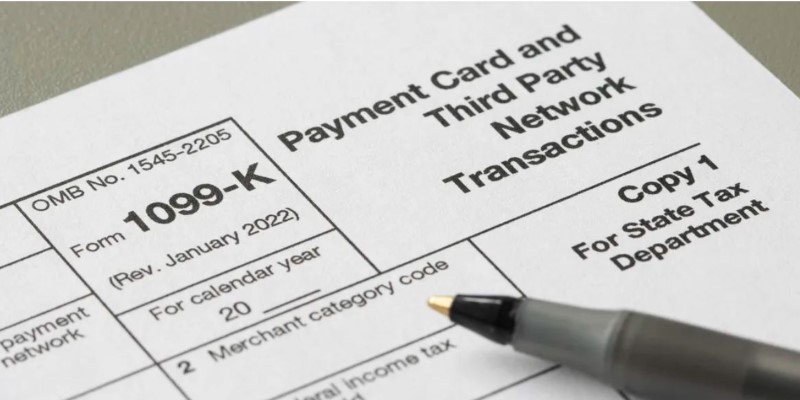What is the 1099-K Form and Why Did I Receive One?
Dec 18, 2023 By Triston Martin
For many new start-ups and companies that have started to expand massively, the growth certainly feels exceptional. However, it also comes with the baggage of gaining a lot of tax knowledge and understanding how this side of the world works apart from running your business.

Among the many tax and financial terms in the business world, one that you might have recently come across (given that you are here to gain more information on it) is the 1099-K Form. If you have received this Form recently and cannot figure out its purpose or why you got one, then this article has you covered. Hop on below to learn what the Form 1099-K is and why you might have received it.
What is Form 1099-K?
The 1099-K is a transaction record that is sent to the IRS by many third-party payment networks like PayPal or Venmo. These third-party networks fill out these 1099-K forms and send copies to the IRS, the state, and the person who had received the said payments. However, the question is, what is the purpose of these forms? Well, the main objective of these forms, which are sent to the IRS, is to ensure that people report their business income correctly on their tax returns.
You must be wondering why these third-party payment networks send a Form 1099-K on every payment transfer or transaction. Well, no, this is not the case, and in fact, there are criteria on which this particular Form is issued. Want to know what this criteria is? We have this covered for you as well.
When Does Third-Party Payment Network Send Form 1099-K?

Your third-party network will not send a Form 1099-K for every transaction record. In fact, these companies will have set requirement criteria on when these forms have to be sent. What are these criteria?
Well, the online network is required to file and send a 1099-K form every time the company transfers an amount of $600 to you anytime during the year. This particular amount is an aggregate, and it doesn’t mean that only when $600 of transfer is made together would the third-party payment network send a 1099-K Form. In fact, even if different people send you small amounts of money throughout the year and these transferred amounts add up to $600, the third-party company would then be bound to issue a 1099-K form for you.
Many people might confuse this particular Form with a W-2 form. However, the W-2 Form is not the same. A W-2 form reports the income that is paid to the employees of a company, while the Form 1099-K is given in different scenarios. Want to know who gets the Form 1099-K? Keep on reading below.
Who Gets the Form 1099-K?

At the end of each year, any payment card company, payment app, or online marketplace fills out and issues the form 1099-K. These forms are sent to the IRS, and they are also sent to the individual for whom it was issued by 31 January. If you are someone who received this Form for the first time, then we are sure you must be wondering why you got this Form. Well, one gets Form 1099-K in these situations:
When You Take Direct Payments by Credit or Bank Cards for Selling Goods and Providing Services
Suppose a company or online service receives direct payments by credit, debit, or gift card from their customers or other clients. In that case, they will receive a Form 1099-K from the payment processor or through the payment settlement entity.
When One Receives Over $20’000 from 200 Transactions
A payment application or online marketplace will also send you a Form 1099-K if the payments you received from clients, services, or for several other goods total over $20’000 when more than 200 transactions are received. However, this particular amount and transaction quantity can differ and might be a little different and lower in various companies.
Therefore, an individual needs to report all their income when making a tax return truthfully, irrespective of whether they received a Form 1099-K or not. This means reporting for payments for any:
- Goods that the company sells also include personal items such as clothing or furniture.
- The overall services that a company provides.
- And any rental property that they have given out.
Moreover, the payments made through all these places will also receive a 1099-K form:
- Payment applications
- Online community marketplaces
- Auction site
- Craft or maker marketplace
- Car-sharing or ride-hailing platform
- Ticket exchange or resale site
- Freelance marketplace, etc.
Wrapping Up!
If you are someone who recently received a Form 1099-K for the first time, then we are sure you must be scratching your head about what it is and why you received it. If these are the questions that were passing through your head, and you hopped online to search for the answers and were led here – then we hope this article was helpful.
While many people believe that these transactions, which lead you to receive a 1099-K form, are business-related, this may not always be the case. Anybody who receives payments from credit cards or any third-party application is bound to receive this Form. So, once you have understood what this Form is after reading this article, we suggest you move on to understanding the possible reason you received this.





